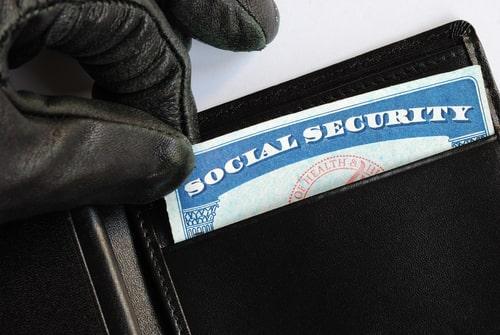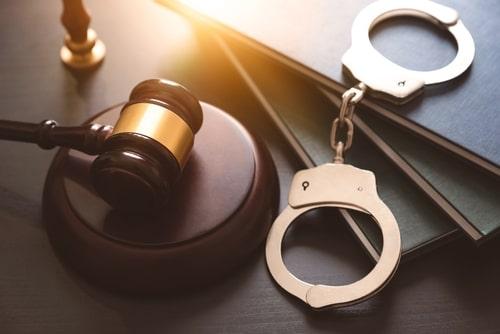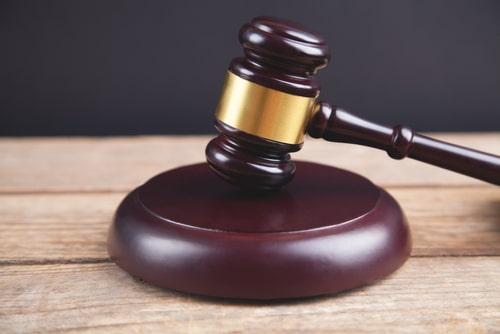Recent Blog Posts
When Can a Person Be Charged With Domestic Battery in Wisconsin?
When accusations of domestic violence occur, there are multiple ways that a person and their family can be affected. Someone who is arrested based on these accusations may face multiple types of criminal charges, including domestic battery. This is a serious crime under Wisconsin law, and it can have significant consequences for the accused. Being charged with domestic battery can result in severe penalties, including jail time, and accusations of domestic abuse can have a significant impact on a person's personal and professional life. It is essential for criminal defendants to understand the factors that can lead to criminal charges, the specific crimes they are accused of, and the consequences of a conviction.
Battery, Substantial Battery, and Aggravated Battery in Wisconsin
Under Wisconsin law, domestic abuse is defined as intentionally causing injuries or physical pain to a spouse or former spouse, an adult who lives in the same home or previously resided with the alleged perpetrator, or the other parent of a person's child. It may also involve committing an act of sexual assault against a person or threatening or intimidating them in a way that causes them to fear that they will suffer bodily harm.
Wisconsin Parenting Plans for Divorced Parents
 Divorce can be a challenging and stressful experience. When parents in Wisconsin get divorced, they are required to create a parenting plan that outlines how they will share the responsibilities of raising their children. A parenting plan is crucial to the divorce process because it guarantees that both parents remain involved in their children's lives and that the children's well-being is prioritized.
Divorce can be a challenging and stressful experience. When parents in Wisconsin get divorced, they are required to create a parenting plan that outlines how they will share the responsibilities of raising their children. A parenting plan is crucial to the divorce process because it guarantees that both parents remain involved in their children's lives and that the children's well-being is prioritized.
Key Aspects of Wisconsin Parenting Plans
Legal Custody
In Wisconsin, legal custody is defined as the right to make major decisions about the children’s lives, such as their education, medical care, and religious upbringing. When creating a parenting plan, parents must decide whether they will have joint legal custody or whether one parent will have sole legal custody.
Physical Placement
Physical placement refers to the schedule of when the children will be with each parent. In Wisconsin, the law assumes that joint physical placement is in the best interests of the children unless there is evidence to the contrary. Parents must create a placement schedule that outlines when the children are with which parent, including holidays and vacations.
When Can a Person Be Charged With Identity Theft in Wisconsin?

Identity theft is a very serious crime in the state of Wisconsin. It involves a person using someone else's personal information to gain access to financial accounts, take out loans, or purchase items without permission. People who are accused of identity theft can face severe penalties if they are found guilty in a court of law. However, not every case of alleged identity theft is the same, and it is important to understand the different scenarios in which a person can be charged with this crime.
Offenses Related to Identity Theft in Wisconsin
Identity theft is a broad term that encompasses a variety of offenses. These include:
-
Unauthorized use of an individual's personal identifying information - There are multiple different types of ID numbers and records that a person may use to verify their identity or engage in financial transactions. These may include their name, address, phone number, driver's license number, Social Security number, employment records, taxpayer identification number, bank account numbers, biometric data such as fingerprints or a DNA profile, and even verifying information such as their mother's maiden name. Possessing, using, or transferring personal identifying information without the person's permission is a criminal offense if it is done for monetary gain or with the intent to cause harm to the person. This offense is a Class H felony.
How Are Retirement Accounts and Pensions Divided in a Divorce?

Retirement accounts and pensions are often among the largest assets in a married couple’s estate. When a couple decides to get a divorce, these assets must be divided between the spouses alongside multiple other types of marital property. It is important to understand the issues that will need to be considered when dividing retirement benefits. This can ensure that the financial interests of both spouses will be protected, and it can help them make informed decisions about their future.
Options for Dividing Retirement Accounts and Pensions
Retirement savings accounts, including 401Ks or IRAs, usually consist of money that is deducted from a person's income and invested in financial funds. These accounts will grow over time, providing the account holder with income they can use to meet their needs after their retirement. Pension benefits are similar, although they usually will not require deductions from a person's income. Instead, they will consist of ongoing benefits that will be paid from a pension fund after retirement.
How Can Child Support Orders Be Enforced in Wisconsin?

If you are a divorced parent in Wisconsin who is owed child support, you may be wondering about your options for enforcing the court's orders and ensuring that the other parent provides the financial support your children need. The good news is that there are a number of methods that can be used to enforce child support orders in Wisconsin. By understanding the options available and working with an attorney to address these issues, you can take steps to ensure that your ex complies with the court's orders.
Methods of Child Support Enforcement in Wisconsin
When child support orders are put in place by a family court judge, a parent will be required to make all payments on time and in full. Any missed payments must be made up, and interest will be charged until the past-due amounts are paid off. In situations where a parent has not met their obligations, courts may take actions such as:
How Will a Divorce Affect My Family Business?

A divorce can be a difficult and emotional situation for your entire family. As you and your spouse address issues related to the end of your marriage, you will need to separate multiple aspects of your lives, including determining where each of you will live and how you will divide the different assets you own. If you or your spouse own a family business together, or if either or both of you are involved in business ventures with other family members, these issues can complicate the situation even more. There are several important considerations to take into account when navigating your divorce and determining how your family business will be affected. Here are some issues you will need to be aware of during the divorce process:
Why You Should Never Speak to Police Without a Criminal Defense Lawyer

In the United States, the "right to remain silent" is well-known. After hearing police officers in movies and TV shows inform people of this right whenever they are arrested, American citizens know that they have protections that will allow them to avoid incriminating themselves. However, people choose to waive this right far too often. Even if a person is just trying to be helpful and cooperative with police investigations, they can inadvertently provide information that could lead to criminal charges. A recent high-profile case illustrates the dangers that people face when interacting with police and the importance of being represented by an attorney.
When Are Restrictions on Child Custody Appropriate?
 In a divorce or family law case involving parents, the court must determine what is in the best interests of the children. This includes deciding how parents will share custody of their children. Child custody cases will address legal custody, or the rights of parents to make decisions about issues such as education and medical care for children, as well as physical placement, or the time that children will spend with each parent. In some cases, Wisconsin courts may impose restrictions on child custody if this is necessary to protect the children's safety and well-being. Parents will need to understand when these types of restrictions may be put in place and how they can protect their parental rights while providing for their children's best interests.
In a divorce or family law case involving parents, the court must determine what is in the best interests of the children. This includes deciding how parents will share custody of their children. Child custody cases will address legal custody, or the rights of parents to make decisions about issues such as education and medical care for children, as well as physical placement, or the time that children will spend with each parent. In some cases, Wisconsin courts may impose restrictions on child custody if this is necessary to protect the children's safety and well-being. Parents will need to understand when these types of restrictions may be put in place and how they can protect their parental rights while providing for their children's best interests.
What Are Restrictions on Child Custody?
Courts may decide to place legal limitations upon one or both parents that will apply when they spend time with their children, interact with the other parent, or make decisions about child-related issues. In some cases, a parent may be restricted to supervised visitation with their children, and they may be required to spend time with children in a public place while under the supervision of a social worker or another person. Parents may be required to exchange children in public locations or through third parties. If children's health and safety may potentially be at risk, a parent may be prohibited from using drugs or alcohol before or during their visitation time, or they may not be allowed to have children stay overnight in their home. A parent may also be required to receive treatment for substance abuse or psychological treatment to address mental health issues, or they may be ordered to participate in a domestic abuse prevention program.
When Can Drug Use Lead to OWI Charges in Wisconsin?
 Operating a vehicle while under the influence of an intoxicating substance is a serious offense in Wisconsin. In many cases, arrests for Operating While Intoxicated (OWI) occur because a person is suspected of drinking alcohol before getting behind the wheel. However, OWI charges may also apply if a person is accused of driving while under the influence of controlled substances or other drugs. If you have been arrested for operating a motor vehicle while under the influence of drugs, it is important to understand the laws that apply to your case, the potential consequences you may face, and the steps you can take to protect your rights.
Operating a vehicle while under the influence of an intoxicating substance is a serious offense in Wisconsin. In many cases, arrests for Operating While Intoxicated (OWI) occur because a person is suspected of drinking alcohol before getting behind the wheel. However, OWI charges may also apply if a person is accused of driving while under the influence of controlled substances or other drugs. If you have been arrested for operating a motor vehicle while under the influence of drugs, it is important to understand the laws that apply to your case, the potential consequences you may face, and the steps you can take to protect your rights.
Wisconsin Law on Drug-Related OWI Charges
In Wisconsin, it is illegal to operate a vehicle while under the influence of an intoxicant. In addition to alcohol, intoxicants may include controlled substances such as marijuana, heroin, cocaine, methamphetamines, or prescription drugs such as opioids. A combination of multiple substances may also cause a person to become intoxicated. For example, a person may drink a small amount of alcohol that would not normally cause them to be intoxicated, but if they have also used prescription drugs, over-the-counter cold and flu medicines, or marijuana, the combination of these substances may cause a higher level of impairment than they would experience when using the individual substances on their own.
Read Our Top 10 Criminal Defense and Family Law Blogs for 2022
 At Bucher, Wolff & Sonderhouse, LLP, we provide compassionate, effective legal representation in criminal defense and family law cases, and we also strive to educate and inform people about the legal issues that may affect them. Through our blog, we discuss different types of criminal charges, issues related to divorce and child custody, and other matters that we can help clients address. As part of our ongoing efforts to provide useful information about the law, here are our top blogs that our readers found to be helpful in 2022:
At Bucher, Wolff & Sonderhouse, LLP, we provide compassionate, effective legal representation in criminal defense and family law cases, and we also strive to educate and inform people about the legal issues that may affect them. Through our blog, we discuss different types of criminal charges, issues related to divorce and child custody, and other matters that we can help clients address. As part of our ongoing efforts to provide useful information about the law, here are our top blogs that our readers found to be helpful in 2022:
-
What Are the Consequences for Disorderly Conduct in Wisconsin? - We look at how Wisconsin law defines disorderly conduct, examples of conduct that could lead to criminal charges, and the consequences a person may face if they are convicted of this offense.









 262-232-6699
262-232-6699






